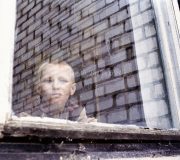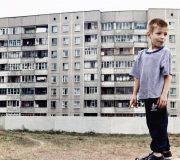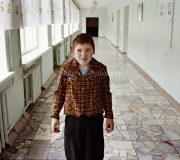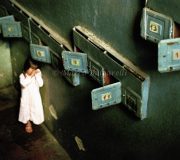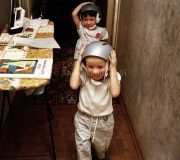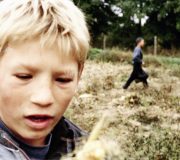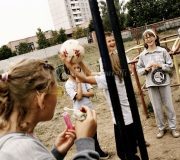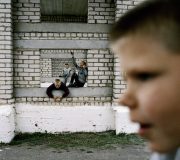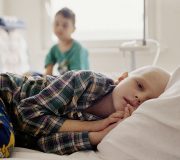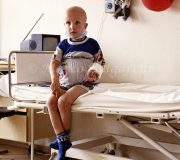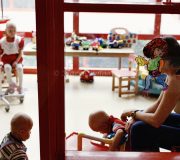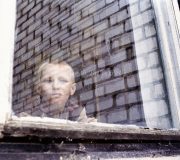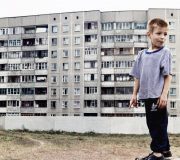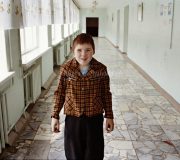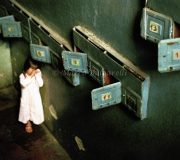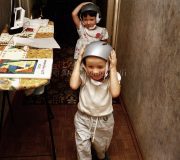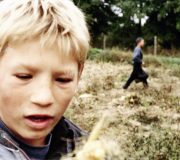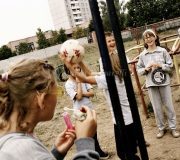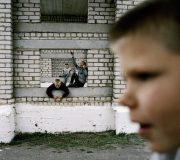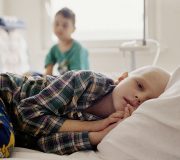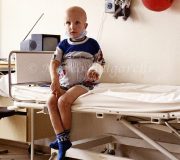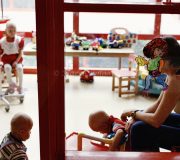Chernobyl children of Belarus
At 01:23 am of a fateful day, April 26th, 1986, Ukraine and its neighbor Belarus became a huge open-air deposit of radioactive material: atomic reactor number 4 of the Chernobyl nuclear power plant exploded and released the biggest toxic cloud that the world had never known.
An area of 155.000 square meters in the heart of “Europe’s granary” became in a few minutes an endless contaminated field, and the toxic cloud destroyed around 52.000 square kilometers of crops. They were gone forever.
It was like Southern Italy became a huge dump of radioactive material and the citrus plantations of the whole of Sicily and the vineyards of Puglia and Campania were burned by unstoppable gangrene.
On the twentieth anniversary of the nuclear disaster which contaminated around 8 million and 400 thousand people in Ukraine, Russia, and Belarus (UN data), many children were able to avoid the rhetoric of a predictable catastrophe, the tears of the victim’s families, the shame of being Chernobyl children.
Every year in Italy, in Europe, and in the World, a number of humanitarian associations organize temporary adoptions in host families for thousands of 7-18 years old children who come very often from one of the several orphanages or family houses in Belarus (94% of cases). These orphanages host basically “alive’ orphans”, since more than 30.000 alcoholic parents have been deprived of parental authority, and the temporary adoptions allow them to spend a three months summer vacation (plus Christmas and Easter Holidays) far away from those radiations that killed around 4400 people just in Ukraine.
A breath of fresh air, in the true sense of the word, which means to strengthen the immune system of children who fall ill five or six times per year even though they were born without any kind of deformity.
A simple cold can represent a threat to a body whose antibodies have been partially killed by carcinogenic radiation. But the list of pathologies includes leukemia and cancer.
Offering the opportunity to these kids to avoid Chernobyl’s air, water, and food, even for only a few weeks means saving them from thyroid cancer, mental disturbances, and the growth of anomalous antibodies leading to a slow process of self-destruction. The experts claim that in the next 10 years, “Chernobyl’s syndrome” could affect other 50.000 people living in the contaminated area.
By coming to our country they have the opportunity to strengthen their immune system. Death cases among kids adopted by foreign families have diminished by 30%.
It’s still hard to estimate the size of this tragedy, and the only certain fact is that almost 90% of the entire population is affected by chronic diseases.
Belarus pays even higher due because of malnutrition. This is caused by the soil being contaminated by radiation, and not even President Lukashenko was able to fight malnutrition through the 9% of the GDP devolved to the country’s welfare and medical care.

